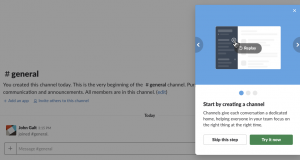Hello, welcome to the internet—a cold, unforgiving place where the dank memes are retweeted with glee, and the cringeworthy panderers are downvoted into submission.
We’ve seen a lot of hype lately from the viral content marketing types about hopping on the hot trends and their efficacy for brands’ marketing efforts—articles like this New York Times story about TikTok shopping, and this Hubspot blog, and this Forbes piece about meme content. And honestly, we just don’t buy into it.
To be abundantly clear—we aren’t saying memes can’t be used in marketing efforts. Heck, we’ve created entire meme formats and built original content meme-marketing campaigns for brands (and they’ve been decently successful, at that).
And we also aren’t saying that engaging with trends on hot platforms like TikTok and Reddit are worthless marketing efforts. Come on, we’re a digital marketing agency, we love TikTok.
But we are saying that any kind of viral content marketing effort that focuses more on the platform and the trend than the brand and the content is missing the point. And in a world where a Snapchat ad runs for a cool $ 75,000 (conservatively), that’s a pretty expensive mistake to make.
So, before you drop your entire marketing budget behind replicating and promoting your video of the next Milk Crate Challenge, here are three pulse-checks to consider:
- What are your goals?
Not to be pedantic here—but, seriously, what are your goals? Executives are generally pretty good at remembering the table stakes and building initiatives that address the task at hand, but for some reason when it comes to hopping on a hot social media trend, all strategy seems to jump out the window. What’s the deal with that? Our hunch is that because the social media landscape changes so rapidly, how and when to engage with it still feels like an unknown. And the unknown is scary. Executives and managers are so worried about staying “on trend” and looking “relevant” they often leave common sense at the door and rush out to the jump on the “Next Big Thing,” for fear of getting left behind. - Will this content resonate with your audience?
Now, there are some really key noun choices in the sentence above. First: will this affect your audience? Not just the general populace, but your specific buyer. If you go semi-viral on Snapchat because you made a fool of yourself, that’s all well and good—all press is good press, right? But if in the process you’ve alienated the people who will actually buy your product in exchange for a bunch of new followers who see you purely as a source of entertainment…well, let’s just say social likes and a few chuckles don’t pay the bills nearly as well as sales do.
Secondly: will this content resonate? Not “this trend,” but specifically you, the brand, replicating or participating in it. We’ve written before at Converse Digital about how digital audiences “bullshit meter” is at an all-time high. Brand’s who hop on a trend, and either don’t commit, don’t fit the tone, or (worst of all) don’t actually understand the joke immediately come off as overly-salesy, inauthentic, and pandering. Maybe there is such a thing as bad press…
- Where is your audience?
At its core, meme marketing relies on the same basic foundation as any other form of marketing in order to succeed—relevancy. Specifically, relevancy of the content itself to the people to whom it is directed (audience) on the platform where it is posted. Person, Place, Thing. Which begs the question: is your audience interested in seeing your content on this platform? The answer might in fact be yes—if you are a retail brand cleverly engaging with a Reddit trend as a way to highlight your product to your Gen Z audience, then congratulations, you’ve passed the test. We would not recommend that same brand try to market their product on LinkedIn. Conversely, we don’t see much value in insurance brokers hopping on TikTok to try to drive B2B sales, unless you happen to know for a fact that your hottest lead-scored prospect is a big fan of corn ribs.
In summary: innovate, don’t iterate
Social media can be an extremely powerful tool for your digital marketing campaigns. It should be taken very seriously as a methodology worth engaging, and social channels both old and new need to be critically evaluated for their potential (ummm… cough, Google+). It may very well be that hopping on the bandwagon of a certain platform or content trend is exactly the move your brand needs to make right now. But before you make that call, just make sure you’ve considered whether the juice is worth the squeeze.
Digital & Social Articles on Business 2 Community
(41)


